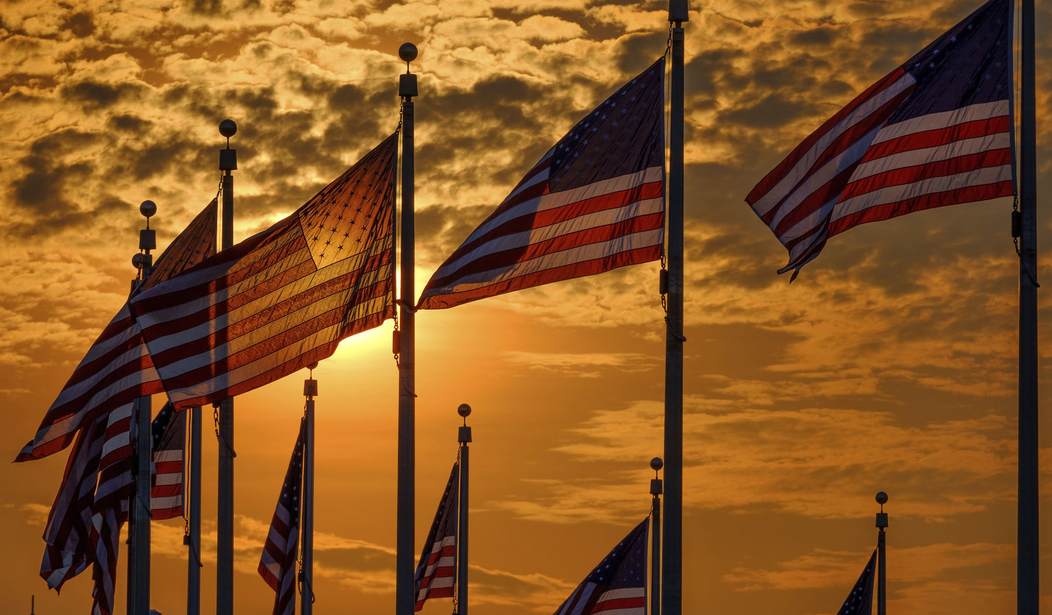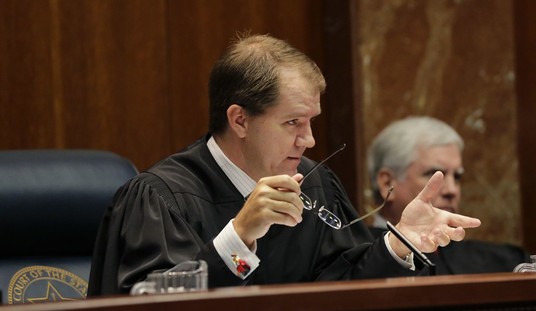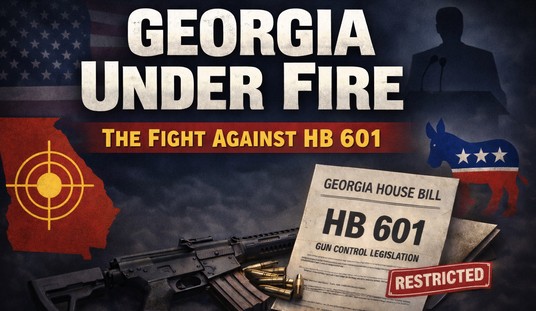I know that most of us simply refer to today as the Fourth of July, but to me that misses what exactly it is that we’re celebrating: not just another day on the calendar but the anniversary of our country’s existence as a free and independent nation.
We wouldn’t have an Independence Day to celebrate if not for our right to keep and bear arms; a right that predated the creation of this nation, but was enshrined in our Constitution a little more than a decade after the Declaration of Independence was signed. During the debates over ratification James Madison made it clear that not only did that right to keep and bear arms help create this nation, but would serve as the ultimate guarantor of our continued liberty. In Federalist 46, Madison engaged in a mental exercise about what would happen if, God forbid, we ever saw the federal government try to impose its tyrannical will against an electorate determined to resist.
Madison started by noting that the system of checks and balances created by the Constitution and already present in the states would diffuse any unlawful attempt to accumulate power within the federal government or the executive branch, and went on to describe a variety of actions that We the People could take if those checks and balances failed.
The disquietude of the people; their repugnance and, perhaps, refusal to co-operate with the officers of the Union; the frowns of the executive magistracy of the State; the embarrassments created by legislative devices, which would often be added on such occasions, would oppose, in any State, difficulties not to be despised; would form, in a large State, very serious impediments; and where the sentiments of several adjoining States happened to be in unison, would present obstructions which the federal government would hardly be willing to encounter.
We’re seeing this today on both sides of the aisle; from states decriminalizing or legalizing marijuana to Second Amendment Sanctuaries vowing not to enforce any new federal gun control laws. I will say that Madison seems to have underestimated the partisan nature of politics, writing as he did at a time before the development of two opposing political parties.
But what degree of madness could ever drive the federal government to such an extremity. In the contest with Great Britain, one part of the empire was employed against the other. The more numerous part invaded the rights of the less numerous part. The attempt was unjust and unwise; but it was not in speculation absolutely chimerical. But what would be the contest in the case we are supposing? Who would be the parties? A few representatives of the people would be opposed to the people themselves; or rather one set of representatives would be contending against thirteen sets of representatives, with the whole body of their common constituents on the side of the latter.
Madison foresaw any existential conflict as arising between the states and the federal government, not between the Left and the Right. But though he might have been blissfully ignorant about the impact that political parties would have on our government going forward, he was still correct in noting that the ultimate power to resist still resides with the People.
Extravagant as the supposition is, let it however be made. Let a regular army, fully equal to the resources of the country, be formed; and let it be entirely at the devotion of the federal government; still it would not be going too far to say, that the State governments, with the people on their side, would be able to repel the danger. The highest number to which, according to the best computation, a standing army can be carried in any country, does not exceed one hundredth part of the whole number of souls; or one twenty-fifth part of the number able to bear arms. This proportion would not yield, in the United States, an army of more than twenty-five or thirty thousand men.
To these would be opposed a militia amounting to near half a million of citizens with arms in their hands, officered by men chosen from among themselves, fighting for their common liberties, and united and conducted by governments possessing their affections and confidence. It may well be doubted, whether a militia thus circumstanced could ever be conquered by such a proportion of regular troops. Those who are best acquainted with the last successful resistance of this country against the British arms, will be most inclined to deny the possibility of it. Besides the advantage of being armed, which the Americans possess over the people of almost every other nation, the existence of subordinate governments, to which the people are attached, and by which the militia officers are appointed, forms a barrier against the enterprises of ambition, more insurmountable than any which a simple government of any form can admit of. Notwithstanding the military establishments in the several kingdoms of Europe, which are carried as far as the public resources will bear, the governments are afraid to trust the people with arms. And it is not certain, that with this aid alone they would not be able to shake off their yokes. But were the people to possess the additional advantages of local governments chosen by themselves, who could collect the national will and direct the national force, and of officers appointed out of the militia, by these governments, and attached both to them and to the militia, it may be affirmed with the greatest assurance, that the throne of every tyranny in Europe would be speedily overturned in spite of the legions which surround it.
In other words, the right of the people to keep and bear arms may not be enough to take on tyranny all by itself. But in conjunction with the power of local and state governments to express and defend the will of the people, that “break glass in case of emergency” right would be able to check a tyrannical government willing to, say, turn its F-16s on its citizens.
I would argue that for most of the 247 years that the United States has existed, that right has helped curb the authoritarian impulses of some of our worst leaders, though I don’t know for how much longer that will be the case. Sometimes I even worry that we won’t be celebrating our 250th anniversary three years from now, and that Madison’s theory could soon be put to the test. I’m not eager or wishful for that to happen; in fact, I think it would be an unimaginable tragedy beyond the scope of our understanding.
As Thomas Paine wrote in December of 1776, after the exuberance of independence had been overtaken by a string of military losses and retreats that saw him writing by the light of a campfire as he and his fellow Continental soldiers tried to stay one step ahead of the pursuing British army: “What we obtain too cheaply we esteem too lightly; it is dearness only that gives everything its value. Heaven knows how to put a proper price upon its goods; and it would be strange indeed if so celestial an article as freedom should not be highly rated.”
There are a lot of folks who will be celebrating Independence Day while believing that freedom is overrated; it feels like almost all of our liberties are under assault in some shape or form these days, and that’s certainly the case for our freedom to keep and bear arms. From “carry killer” laws enacted post-Bruen to bans on commonly-owned arms the gun control lobby’s entire argument rests on the assumption that by sacrificing our freedom we can achieve safety, and that those standing in their way care more about their freedom than the victims of “gun violence.” All you have to do is look beyond our southern border to know the inherent falsehood and outright cruelty in promoting that idea; a nation whose citizens are broadly disarmed and are terrorized not only by drug cartels but by individuals within the government itself.
It’s not just lawlessness that breeds violence. Laws designed to curtail the freedom (and the means) to defend your life do the same. We don’t have to sacrifice our right to keep and bear arms to ensure serious consequences for violent crimes, or to better identify and defuse threats before they can be carried out. We don’t have to turn tens of millions of responsible gun owners into felons for non-violent, possessory offenses carved out of our Second Amendment rights in order to stop gang violence or petty beefs from escalating into shootouts. In fact, trying that approach not only makes a mockery out of our individual freedom but replaces a culture of responsible gun ownership with one that treats the exercise of a right as a legal and cultural taboo; enforced ignorance alongside a tacit acceptance of criminality.
I know, I know. The Founding Fathers could never have envisioned this much violence, right? Wrong. Homicide rates during the War of Independence are estimated to have been around 30 per 100,000 people, or about five times higher than the estimated 6.5 per 100K for 2022. Those homicide figures don’t include battlefield casualties either. The United States was a dangerous and violent place during that time period, yet there was no real thought to combatting that problem by disarming the citizenry of their muskets, pistols, hatchets, or knives.
Madison says that our right to keep and bear arms is a check on tyranny, and I believe that to be true against both authoritarian governments and the petty tyranny of violent criminals. The United States is not, has never been, and will never be heaven on earth, but the Second Amendment has helped to safeguard our liberties for more than two centuries, and hopefully that will continue to be the case long after you and I have joined the Founding Fathers in the great beyond. In our current turmoil I do indeed hold the blessings of liberty dear, imperfect and incomplete though they may be, that were bestowed upon us by that generation who declared independence and blazed a path towards freedom that few other nations on earth have dared to follow.









Join the conversation as a VIP Member